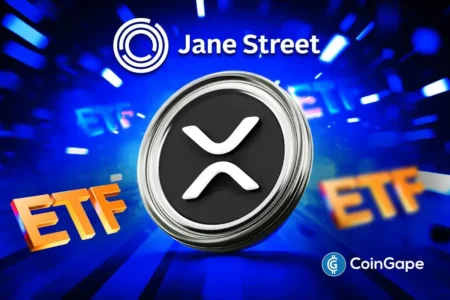Delay in Fidelity’s Solana ETF: What It Means for Investors
Fidelity’s attempt to launch a Solana Exchange-Traded Fund (ETF) has encountered yet another setback, with the U.S. Securities and Exchange Commission (SEC) delaying its decision once again as of July 7, 2025. The proposed rule change to list and trade the Fidelity Solana Fund was filed by the Cboe BZX Exchange. The SEC’s delay highlights a broader regulatory landscape that remains uncertain for crypto-based ETFs, particularly those linked to alternative coins like Solana.
SEC Review of Fidelity’s Solana ETF Proposal
The SEC has officially entered the review phase to decide whether to accept or reject Fidelity’s proposal. According to the SEC’s documentation, the regulator has solicited public comments within 21 days and rebuttals within 35 days of its publication in the Federal Register. Market analysts, including James Seyffart from Bloomberg, anticipated this delay, citing that it underscores the SEC’s ongoing hesitance to approve spot crypto ETFs for altcoins. The current regulatory framework needed for such products continues to remain incomplete, which complicates the approval process for the Fidelity Solana ETF.
The Need for Regulatory Clarity
Analysts have emphasized the need for greater regulatory clarity, which has stunted countless new offerings in the cryptocurrency sector. This delay coincides with the SEC’s release of its first formal guidance on crypto exchange-traded products, which significantly affects all Solana ETF filings. This guidance aims to provide clearer directions on how these products should be presented and understood.
SEC Overhauls Guidelines for Crypto ETFs
A recent report from Reuters outlined a significant update under the leadership of the Republican-majority SEC. The new guidance establishes a framework for how various crypto ETFs will be managed moving forward. It mandates that asset managers provide clear explanations of the inherent risks and unique features of crypto-based ETFs in "plain English." These disclosures are crucial for offering both investors and regulators a comprehensive understanding of what differentiates these funds from traditional investment vehicles, especially in the case of altcoin products like the Solana ETF.
Potential for Faster Approvals
Additionally, the SEC is developing a second document designed to streamline the listing process for future ETFs. Should this update be implemented successfully, approval times could be reduced from over 200 days to about 75 days, thereby facilitating quicker market entry for many crypto-based products. However, for the time being, the Fidelity Solana ETF remains mired in regulatory challenges, reflecting a critical moment for the future of crypto ETFs in the U.S. market.
Alternative Investment Options
While the Fidelity Solana ETF remains in limbo, other firms are exploring alternative approaches to provide investors with exposure to the Solana network. Recently, REX Financial and Osprey Funds announced the launch of the REX-Osprey Sol + Staking ETF, which offers indirect exposure to Solana and its staking rewards. While not a direct Ethereum ETF, it represents an innovative solution for investors looking to penetrate the crypto market without waiting on the SEC’s decision.
Conclusion
In summary, Fidelity’s delay in launching its Solana ETF underscores the existing uncertainties and complexities within cryptocurrency regulation in the United States. As the SEC navigates this new territory with fresh guidelines, investors keen on altcoins will need to stay vigilant and informed. With derivatives like the REX-Osprey ETF emerging, there may be alternative avenues for investors to explore while waiting for clarity on Fidelity’s proposal. Overall, while the future looks promising for crypto ETFs, the continued regulatory discussions will be pivotal in shaping their landscape.
















